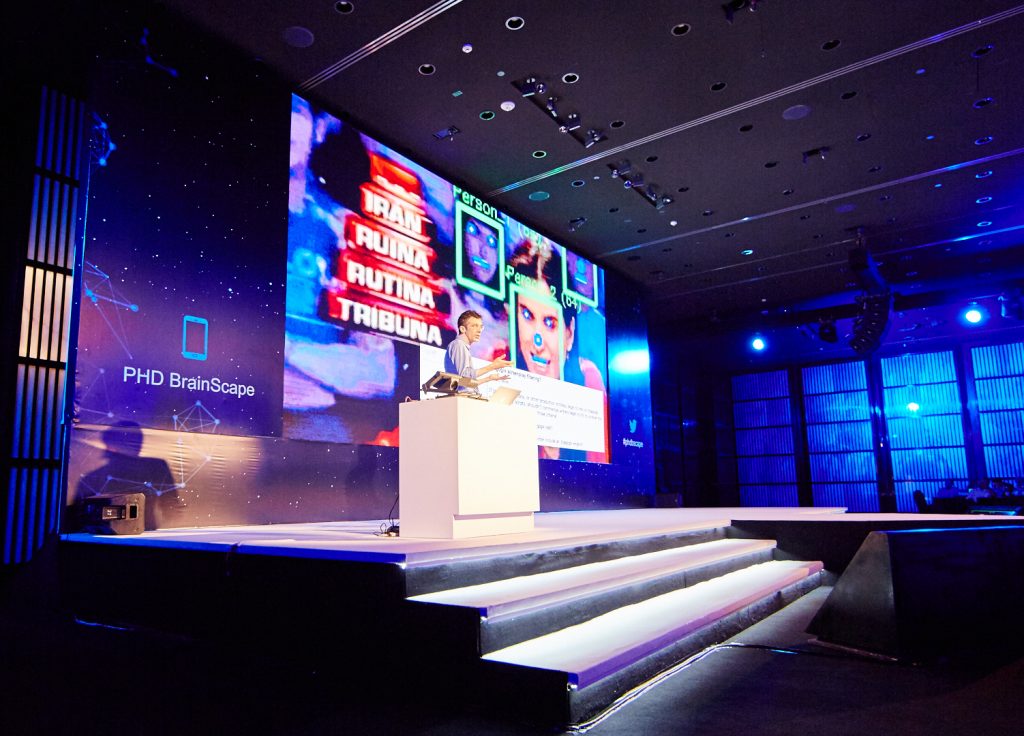
PHD BrainScape highlights ways to stimulate Millenials
Gamification is set to become one of the most popular ways to create engagement among consumers and employees, the 222 marketing professionals attending this year’s PHD UAE (Omnicom Media Group) BrainScape conference were told. Although the term may prove hard to sell at board level, the science behind it and the business results make a strong case for gamification.
If gamification adds game mechanics and creates platforms to reward consumers and employees or stimulate a change in behavior, there is ample evidence of the effectiveness of the approach to a range of problems and situations. The audience at PHD BrainScape saw how it helped find a solution to global health issues or stimulate drivers to reduce their speed. Through gamification, companies have created advocates among their customers and enhanced their customer service.
Gabe Zichermann, founder of Dopamine and Livecube, as well as a renowned consumer and employee engagement design expert, stunned the audience of marketing professionals by suggesting the generation of millennials will require a different level of stimulation than previous generations. These future consumers and future employees have the capacity to work faster, smarter, but have a higher capacity to be distracted. “This is a generation that will not accept the way the world is. If they are not impressed, they will leave you as a customer and go for a competitor,” Zichermann warned.
This brutal assessment of the challenges ahead was softened by the solutions Zichermann presented to marketers, who can no longer hope to interact with consumers by just creating content as the next generation demands much more. As Rupert Slade, head of international at PHD CEE, explained, “brands can no longer advertise 52 weeks a year and therefore need engagement to keep the conversation going and their presence in the consumers’ psyche live”.
Slade made the case for new metrics to be used in communications planning, away from traditional measures of reach, frequency or awareness. The digitization of communications and business provide a constant stream of data that can be fed into the thinking and evaluation of media and business performance. “We are presented with the opportunity to try new things, but at the end of the day it takes the will of the client to really push this forward,” he said, adding that this requires a change of culture in the industry and among client organizations.
Scott Schnaars, the general manager-EMEA of Badgeville Inc., provided the audience with additional validation if it was needed. “Last year, Gartner claimed that 70% of the top 1000 global companies would gamify their businesses by 2015,” he stated. “Businesses may want to embrace this trend but they must understand their consumers. Companies need to properly engage users if they don’t want them to feel misunderstood and imposed upon.”
Clients of PHD, the media agency network that has gamified its operating system, Source, to increase cross-network collaboration and cross-pollination of ideas, have certainly seen the benefit of the approach. “This has certainly been an eye-opener. We talk a lot of engagement but we’ve seen here today a great deal of real and powerful examples of how to deliver it in an effective way,” commented Mahitab Hamed from Arla Foods. “I came here to find a better way to do things and I certainly found it. I can’t wait to get started.”
This edition of PHD BrainScape was produced with Choueiri Group’s dedicated digital media representation unit, Digital Media Services (DMS), as strategic partner. DMS handles a premium portfolio of regional online and mobile media, aiming to strengthen the value and effectiveness of the digital communication solutions to brands and advertisers.

